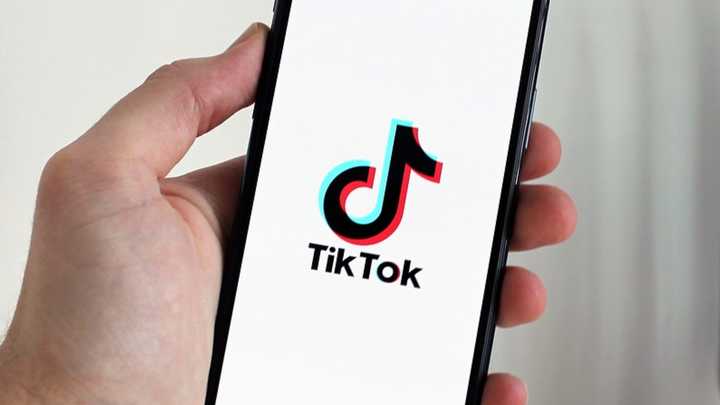The complaint, filed temporarily under seal in the Superior Court of New Jersey, Chancery Division, Essex County, alleges multiple violations of the New Jersey Consumer Fraud Act (CFA), New Jersey Attorney General Matthew Platkin said.
Other AGs are filling similar lawsuits across the country Tuesday, Oct. 9, including those in Kentucky, Louisiana, Massachusetts, Mississippi, North Carolina, Oregon, South Carolina, Vermont and Washington.
The lawsuit seeks multiple remedies to stop TikTok, ByteDance (the Chinese company that owns TikTok), and associated entities from violating the CFA; civil penalties; and the disgorgement of any profits generated in New Jersey through this unlawful behavior.
“Our investigation shows that TikTok knows about the dangerous effects of its platform on young users, and can mitigate these harms, but has deliberately chosen not to do so,” Platkin said. “As a parent and as the chief law enforcement officer for New Jersey, I’m here to tell TikTok, as I have told other social media companies in the past, that our kids are more than just data points to be monetized to advertisers to the detriment of their mental and physical health.”
The complaint alleges TikTok engages in 'unconscionable, abusive, and deceptive business practices that are designed to hide the true purpose of the video app in the U.S. — to encourage excessive, compulsive, and habitual use of the platform by young users to mine their data and sell targeted advertising.'
The allegations assert that TikTok knew user safety was an issue but misled users and failed to address and remediate features that encouraged compulsive use.
The complaints include allegations that TikTok uses the same psychological trick in vulnerable, young users that underlines the addictive nature of slot machines; TikTok knows that the recommendation system that powers its highly-customizable feed incites excessive, compulsive, and habitual use by children; and that the app uses multiple features to compel usages of the app, such as filters, autoplay, endless or infinite scroll, and more.
Research shows that TikTok use by young users causes harm including dysregulated sleep, trouble completing work and school assignments, and impaired social connections, the AG's office said.
In 2021, reports began to surface of children dying because of the “blackout challenge,” after they watched videos teaching them how to asphyxiate themselves.
The company told the press: “At TikTok, we have no higher priority than protecting the safety of our community, and content that promotes or glorifies dangerous behavior is strictly prohibited and promptly removed to prevent it from becoming a trend on our platform.”
And in 2023, its CEO Shou Zi Chew testified to Congress that “safety, particularly for teenagers, as a top priority for us.” But the complaint’s allegations assert that TikTok has repeatedly subordinated young users’ health and safety to its goal of maximizing profits by prolonging young users’ time spent on the platform. At the same time, TikTok’s lack of transparency about its practices and failure to disclose critical information about the platform’s risks has prevented families from making truly informed decisions about their children’s use of the app.
TikTok disregards the dangers to young users because profit comes first, Platkin's office said.
Other negative effects of TikTok include loss of analytical skills, memory formation, contextual thinking, conversational depth, and empathy, as well as increased anxiety, Platkin's office said. Teens also report—and research confirms—increased levels of depression, anxiety, self-harm, suicidal ideation, and eating disorders due to social media use.
TikTok deceives New Jersey consumers about the efficacy of its so-called time management tools, the AG's office said.
Among other measures, the app claims to have a 60-minute limit for teens. But this so-called “limit” is easily bypassed by reentering a passcode or using other simple workarounds. Despite this “limit” proving to have negligible impact, the company publicly boasted about its efficacy.
TikTok deceives children and parents about features like beauty filters.
These features increase user engagement and promote overuse of the app, despite a growing body of evidence that they worsen the mental health of adolescents, primarily girls. Using augmented reality filters to alter one’s appearance is increasingly tied to the perpetuation of certain beauty stereotypes, such as structural facial features and skin color that favor Caucasian or European features, and has been shown to contribute to body image issues, eating disorders, body dysmorphia, and related problems.
Today’s complaint follows a lawsuit New Jersey filed against Meta, owner of Instagram and Facebook, for similar behavior. That complaint alleged that Instagram and Facebook were purposely designed with harmful features to keep children and teenagers online for ever-increasing amounts of time, while Meta falsely claimed the apps were safe. Both the Meta and TikTok complaints arose from the same national investigation, which began in 2022 and was co-led by New Jersey.
In addition to the lawsuits, Attorney General Platkin also co-sponsored a bipartisan letter to Congress last month urging a U.S. Surgeon General warning on all algorithm-driven social media platforms.
Click here to follow Daily Voice Hackensack and receive free news updates.
